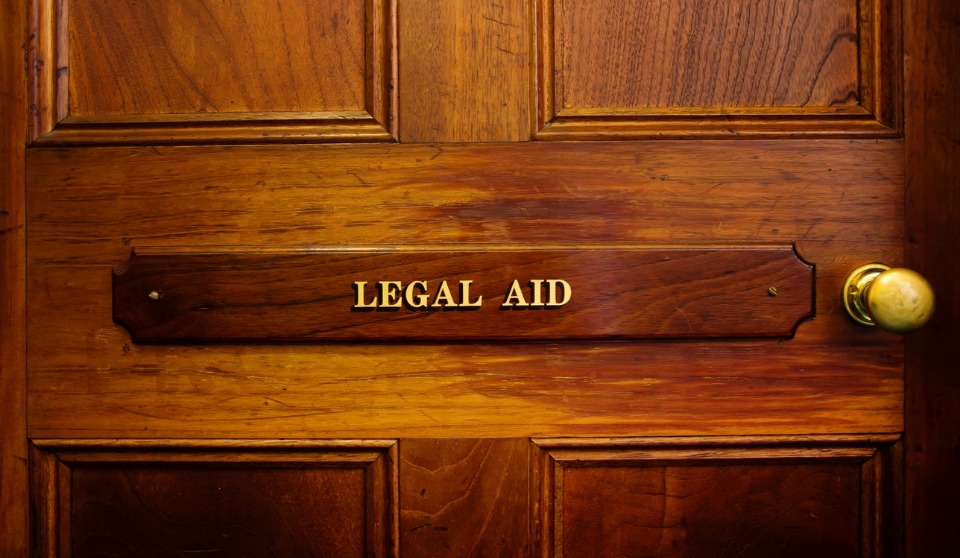
Ontario’s legal aid plan shifts the power behind the scenes, law professors say

A sweeping justice bill that includes a legal aid overhaul both “erodes the autonomy of community legal clinics and their boards,” and reduces the accountability of Legal Aid Ontario, says a new report.
The report, which includes the input or endorsement of nearly 40 Ontario law professors, takes aim at Attorney General Doug Downey’s bill 161, which includes proposed changes to the Legal Aid Services Act.
If passed, the bill would cancel all existing funding agreements between community legal clinics and LAO, which must be renegotiated within six months of the bill coming into force, wrote authors Amar Bhatia, Janet Mosher, Jillian Rogin, Gemma Smyth, Erin Sobat and David Wiseman.
“There is serious concern that such high-pressure, behind-the-scenes negotiations will result in further restrictions on clinic practice, funding, and independence,” said the report, a brief titled “Neither Smarter nor Stronger: Bill 161 is a step backward for access to justice and community-based legal services in Ontario.”
The report — which echoes the concerns reverberating among clinic lawyers since last year — contrasts with Downey’s assessment that the bill has passed the scrutiny of extensive consultation.
When the bill was released, he told Law Times the new rules would give LAO more “flexibility” compared to “prescriptive” existing rules that constrain legal aid to a list of practice areas.
“We want to make sure that there's a healthy balance between modernizing and being accountable to the users,” he said in December.
But like Dana Fisher, the local vice-president for the LAO lawyers union who previously spoke to Law Times, the law professors’ new report indicates that bill 161 provides a murky outlook for future legal aid clinic funding.
FUNDING POWER STRUGGLE?
The proposal would also give LAO “full authority to determine individual and community need for legal aid services,” requiring the organization to simply “have regard to” clinic determinations of the legal needs of their communities, said the professors’ salvo.
“There would be no obligation on LAO to actually fund these determinations of community need,” they noted in the brief.
“Furthermore, there will be little recourse for community clinic clients or boards if LAO does not respond to the legal needs identified by low-income community members.”
Other overtures in the revised act would “explicitly prohibit” LAO from considering the financial impact of its decisions about service provision on clinics; remove required considerations for LAO funding decisions; and revoke the opportunity for clinics to request a reconsideration of “negative or unfavourable decisions,” said the professors’ brief. Another provision gives Downey’s office more say about members of the LAO board, “which itself would have greatly-expanded rule-making powers,” added the professors. The lack of community-clinic credentials for LAO board members was another aspect the professors contested, opining that clinics should “be responsive to the needs of disadvantaged communities, rather than a central bureaucracy.”
PARSING THE BILL
In addition to the concerns about power dynamics between the AG, LAO and clinics, the bill’s wording sparked worries for the professors. For example, the definition of “clinic law” would be narrowed to “poverty law” issues of housing, shelter, income maintenance and social assistance, to the potential detriment of groups who face other issues (addressing discrimination, prejudicial treatment in education, or access to health care or home care). What’s more, the act says that LAO “simply ‘may’ provide poverty law services,” not that it must provide or fund the services, the brief said.
The new wording removes references of “groups of individuals” — relevant for issues such as group tenant applications at the Landlord and Tenant Board, or ethno-linguistic legal clinics, the professors said.
IMPLICATIONS FOR CRIMINAL LAW UNCLEAR
The brief also questioned the sustainability of a proposal dealing with funding for criminal cases. The wording of the bill indicates that LAO would only be required to provide services “where legal representation is required by the Canadian Charter of Rights and Freedoms or by statute,” the professors’ analysis said.
“The cases where the Charter requires representation occur in the criminal and child welfare contexts, where representation is necessary to ensure a fair trial or hearing,” the brief said. “It is quite possible that the statutory directive …. could lead to an increase in court orders requiring that legal aid funding be provided in criminal cases.”
The professors added that without more legal aid funding, the focus on criminal law could divert legal aid’s resources away from addressing poverty, homelessness, and other issues that are correlated to incarceration or child welfare issues (discrimination against racialized and indigenous people, or addiction and mental health challenges).
“Judges sitting in criminal court have expressed concern with the very low income thresholds used to determine eligibility for legal aid,” said the brief. “Developments in this jurisprudence could well lead to an increase in resources being prioritized to circumstances in which courts order legal representation.”